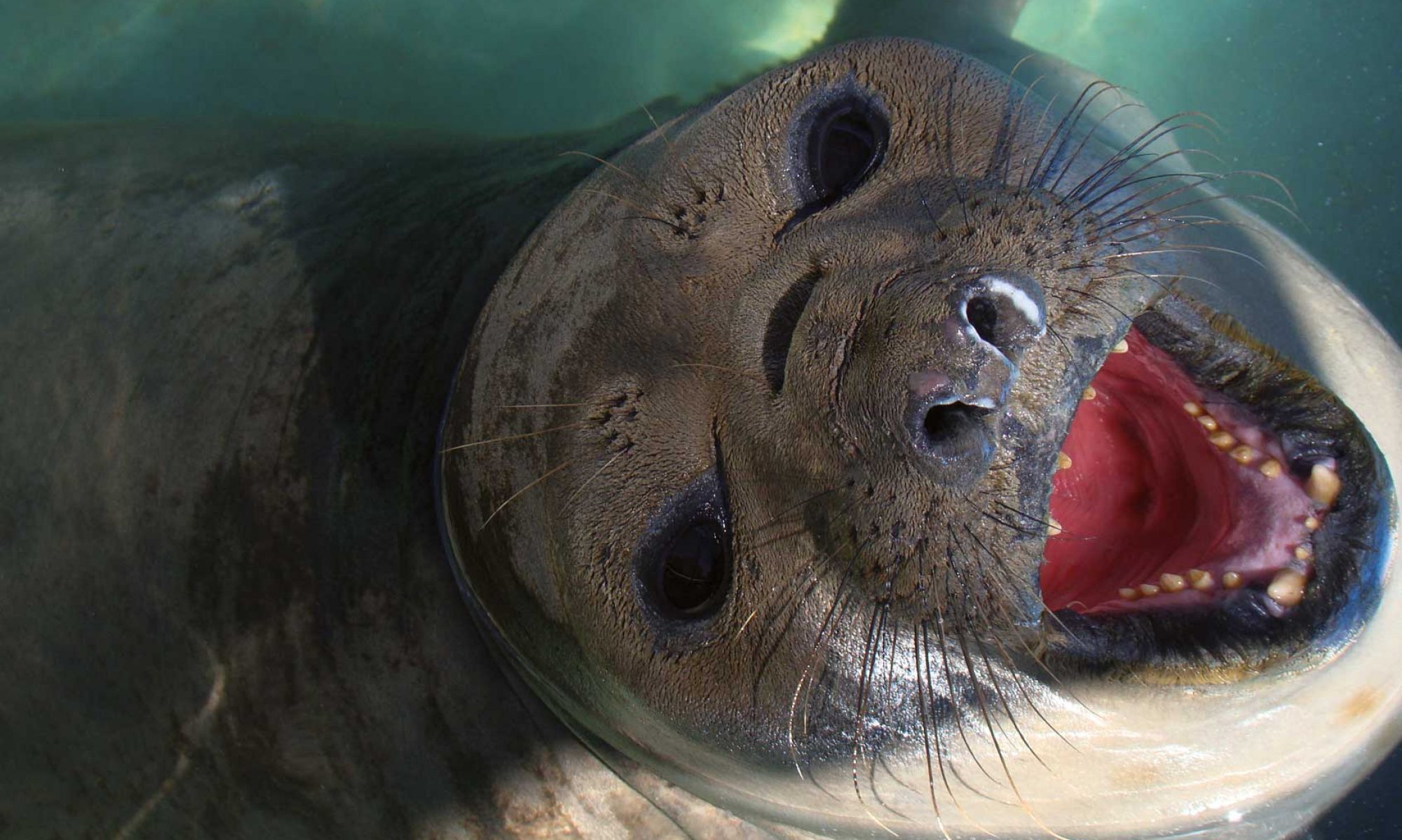
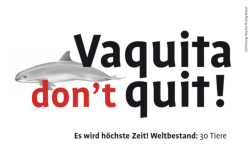
Project SOS Vaquitas | The vaquita (Phocoena sinus) is on the verge of extinction. Within the last decade, the vaquita population has shrunk by 95%, there are now only about 6 – 8 animals left (as of May 2024).
The vaquita urgently needs our help!
With SOS Vaquita, YAQU PACHA e.V., Nuremberg Zoo and the Verein der Tiergartenfreunde Nürnberg e.V. have launched an initiative to specifically support conservation efforts to save the endangered vaquitas.
The aim of the initiative to save vaquitas is to raise awareness of its protection, but also to raise funds necessary to ensure the rescue of this endangered species.
Vaquita, don ́t quit!
What has to happen to save the vaquita?
Saving this animal species and safeguarding the population involves many cost-intensive measures. The most important are: prohibition and compliance with gillnet fishing, the establishment of protected areas, continuous monitoring and environmental education programmes on site.
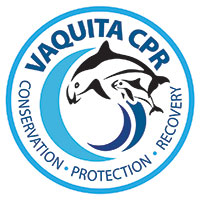 The initiatives collected under the Donate are presented in cooperation with the National Marine Mammal Foundation our partner VaquitaCPR for the implementation of these activities.
The initiatives collected under the Donate are presented in cooperation with the National Marine Mammal Foundation our partner VaquitaCPR for the implementation of these activities.
Latest Inventory counts from 2024 show another decline in the vaquita population with 6 – 8 animals, which makes us very worried.
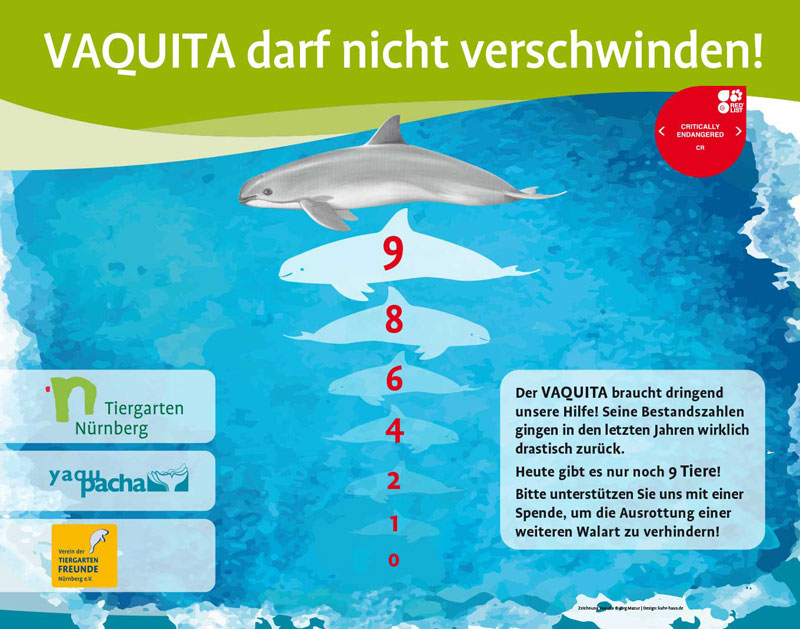
Website with more information about our project – SOS Vaquita
Saving this species is one of the main tasks of YAQU PACHA. We have been active in Latin America for 30 years to protect endangered aquatic mammal species and you can help us save the vaquita from extinction by making a donation .
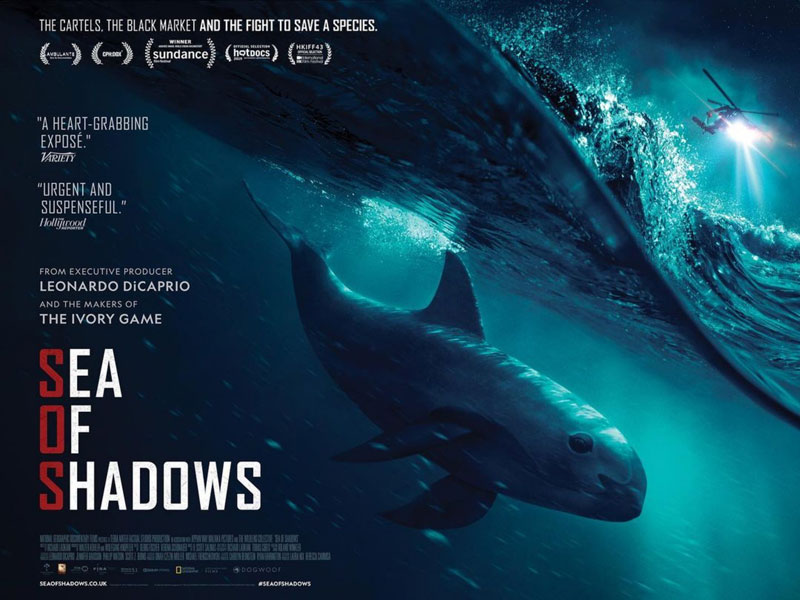
This graphic from the Museo de la Ballena illustrates the problems of this endangered species.

About Vaquitas | Project Amazon Dolphin | Videos | Summary of a successful workshop | Bottlenose dolphin project | Project Sotalia Delfin | Team Germany | Animal species that YAQU PACHA is working to protect | Species Conservation | Protection of animals
